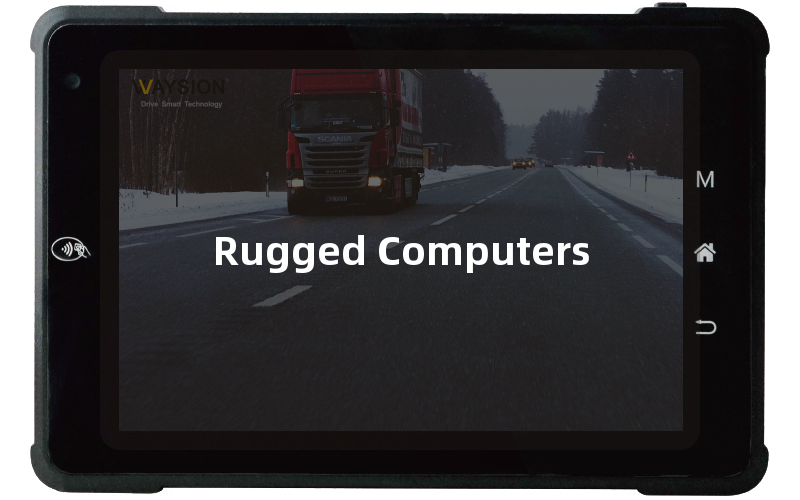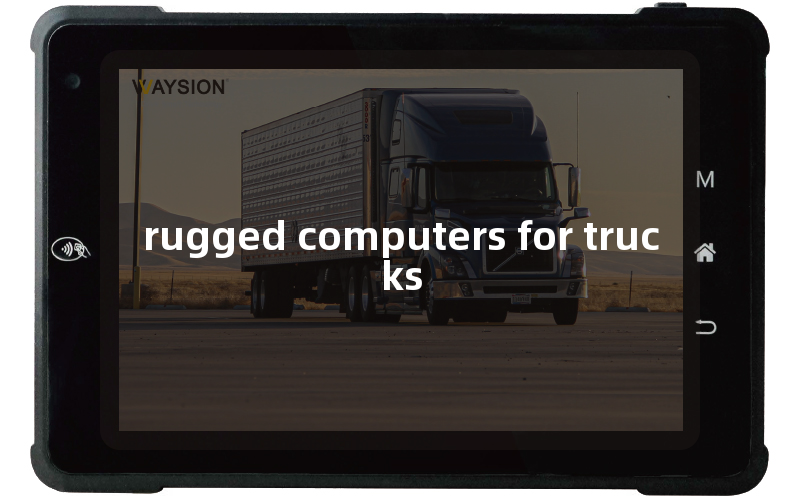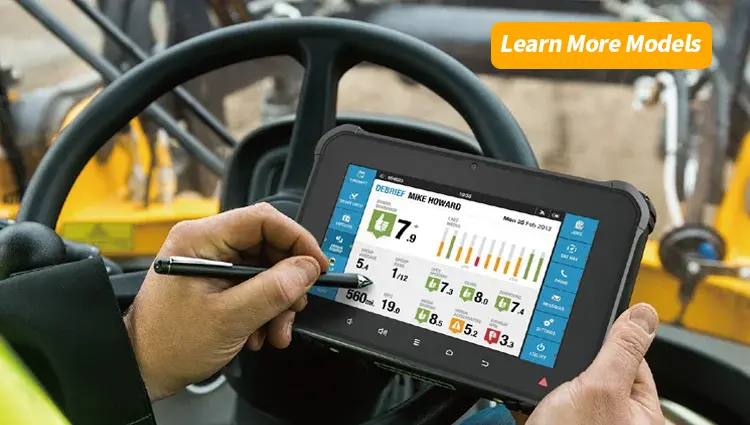The Ultimate Guide to Rugged Computers
In today’s technologically driven world, the need for rugged computers is more pronounced than ever. These robust devices are specifically designed to operate in harsh environments where traditional computers would fail. From military operations to industrial applications, rugged computers ensure reliability, durability, and high performance. In this comprehensive guide, we will delve into the world of rugged computers, exploring their features, applications, and benefits.

What Are Rugged Computers?
Rugged computers are specially engineered to withstand extreme conditions such as dust, water, shock, vibration, and temperature fluctuations. Unlike standard consumer-grade computers, rugged computers are built using high-grade materials and components to ensure they can endure the rigors of challenging environments.
Types of Rugged Computers
There are several types of rugged computers, each tailored for specific uses:
- Rugged Laptops: These laptops are designed for fieldwork and are commonly used by military personnel, engineers, and field researchers. They often feature reinforced chassis, spill-resistant keyboards, and sunlight-readable displays.
- Rugged Tablets: Ideal for on-the-go professionals, rugged tablets offer portability without compromising durability. They are perfect for use in construction sites, warehouses, and outdoor surveys.
- Rugged Handhelds: These compact devices are used in logistics, retail, and healthcare. They are easy to carry and can withstand drops, water exposure, and extreme temperatures.
- Rugged Servers: Deployed in industrial settings, rugged servers provide robust computing power and storage solutions in environments where traditional servers would be impractical.
Key Features of Rugged Computers
Durability
One of the most critical features of rugged computers is their durability. These devices are constructed with robust materials such as magnesium alloy and reinforced plastics. They often meet military standards (MIL-STD-810) for durability and ingress protection (IP) ratings, which indicate their resistance to dust and water.
Environmental Resistance
Rugged computers are built to operate in a wide range of environmental conditions. They can function in extreme temperatures, from freezing cold to scorching heat. Additionally, they are resistant to humidity, vibration, and shock, making them suitable for use in industrial and field environments.
Enhanced Connectivity
Connectivity is crucial for field operations. Rugged computers come equipped with a variety of ports and wireless options, including USB, HDMI, Ethernet, Wi-Fi, and Bluetooth. Some models also offer GPS and cellular connectivity, ensuring seamless communication and data transfer.
Long Battery Life
Fieldwork often requires long hours without access to power sources. Rugged computers are designed with high-capacity batteries that provide extended usage time. Some models feature hot-swappable batteries, allowing users to replace batteries without shutting down the device.
High-Performance Components
Despite their ruggedness, these computers do not compromise on performance. They are equipped with powerful processors, ample RAM, and high-capacity storage solutions. This ensures they can handle demanding applications and multitask efficiently.
Applications of Rugged Computers
Military and Defense
Rugged computers are extensively used in military and defense operations. Their ability to function in harsh conditions and withstand physical stress makes them ideal for use in the field. They support critical applications such as mission planning, navigation, and real-time communication.
Industrial and Manufacturing
In industrial settings, rugged computers are used to control machinery, monitor processes, and manage logistics. Their durability and resistance to environmental factors like dust and moisture make them suitable for factory floors and outdoor installations.
Public Safety and Emergency Services
First responders and emergency service personnel rely on rugged computers for real-time data access and communication. These devices are used in ambulances, fire trucks, and police vehicles, providing critical support during emergencies.
Construction and Field Services
Rugged computers are essential tools for construction managers, engineers, and field service technicians. They enable accurate data collection, project management, and communication in remote locations.
Healthcare
In healthcare settings, rugged tablets and handhelds are used for patient monitoring, electronic medical records, and inventory management. Their robust design ensures they can withstand the rigors of daily use in hospitals and clinics.

Choosing the Right Rugged Computer
Selecting the right rugged computer depends on the specific needs and conditions of the intended application. Here are some factors to consider:
Environmental Requirements
Assess the environmental conditions where the computer will be used. Consider factors such as temperature range, humidity, dust, and water exposure. Ensure the device meets the necessary MIL-STD and IP ratings.
Performance Needs
Evaluate the performance requirements of your applications. Choose a device with adequate processing power, memory, and storage to handle your tasks efficiently.
Portability
Consider the level of portability required. For highly mobile applications, a rugged tablet or handheld device may be more suitable. For tasks requiring more computing power and a larger display, a rugged laptop or desktop might be the better choice.
Battery Life
Ensure the device offers sufficient battery life to support extended fieldwork. Look for options with hot-swappable batteries if continuous operation is critical.
Connectivity Options
Check the connectivity options available on the device. Ensure it supports the necessary ports and wireless connections for your operations.

Benefits of Rugged Computers
Reliability
Rugged computers provide unmatched reliability in challenging environments. Their robust construction and resistance to environmental factors ensure continuous operation without unexpected failures.
Cost-Effectiveness
While the initial investment in rugged computers may be higher than consumer-grade devices, their durability and long lifespan result in lower total cost of ownership. Reduced downtime and maintenance costs further contribute to their cost-effectiveness.
Improved Productivity
By enabling uninterrupted operations in the field, rugged computers enhance productivity. They allow users to perform tasks efficiently and access critical information in real time, regardless of location.
Enhanced Safety
In environments where safety is paramount, rugged computers offer additional protection. Their durability reduces the risk of device failure, which can be critical in hazardous situations.
Future Trends in Rugged Computing
Advancements in Rugged Technology
The future of rugged computing will see continued advancements in materials and design. Innovations such as flexible displays, improved battery technologies, and enhanced connectivity options will further improve the capabilities of rugged computers.
Integration with IoT and AI
Rugged computers will increasingly integrate with the Internet of Things (IoT) and Artificial Intelligence (AI). This will enable smarter data collection, predictive maintenance, and more efficient operations in industrial and field environments.
Sustainability and Eco-Friendly Designs
As environmental concerns grow, there will be a greater emphasis on sustainability in rugged computer designs. Manufacturers will focus on eco-friendly materials, energy-efficient components, and recyclability.
Conclusion
Rugged computers are indispensable tools for industries and sectors that operate in harsh environments. Their durability, performance, and versatility make them ideal for a wide range of applications, from military operations to industrial automation. By understanding the key features, applications, and benefits of rugged computers, businesses can make informed decisions and choose the right device to meet their specific needs.








